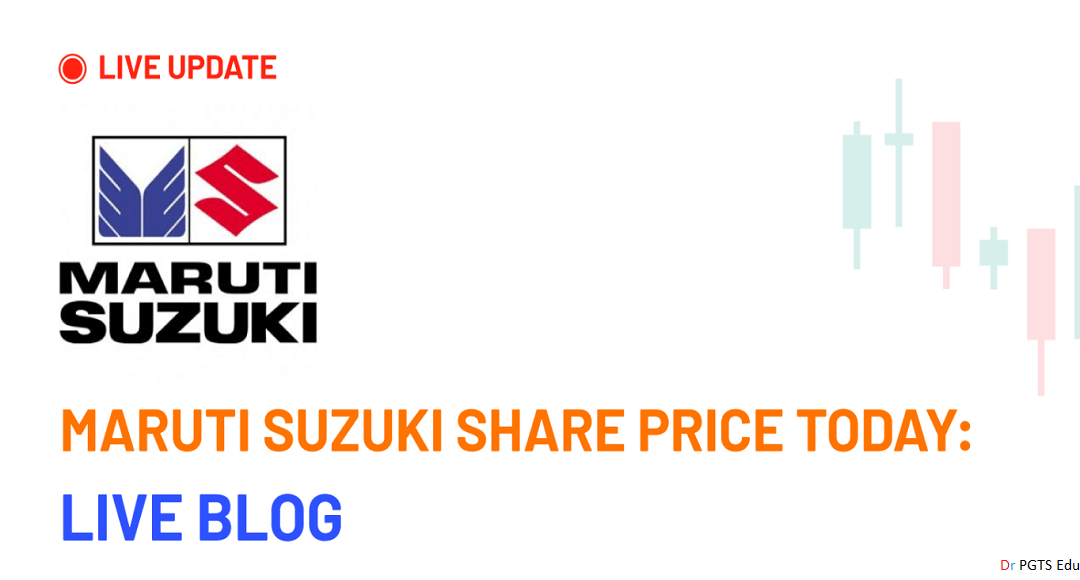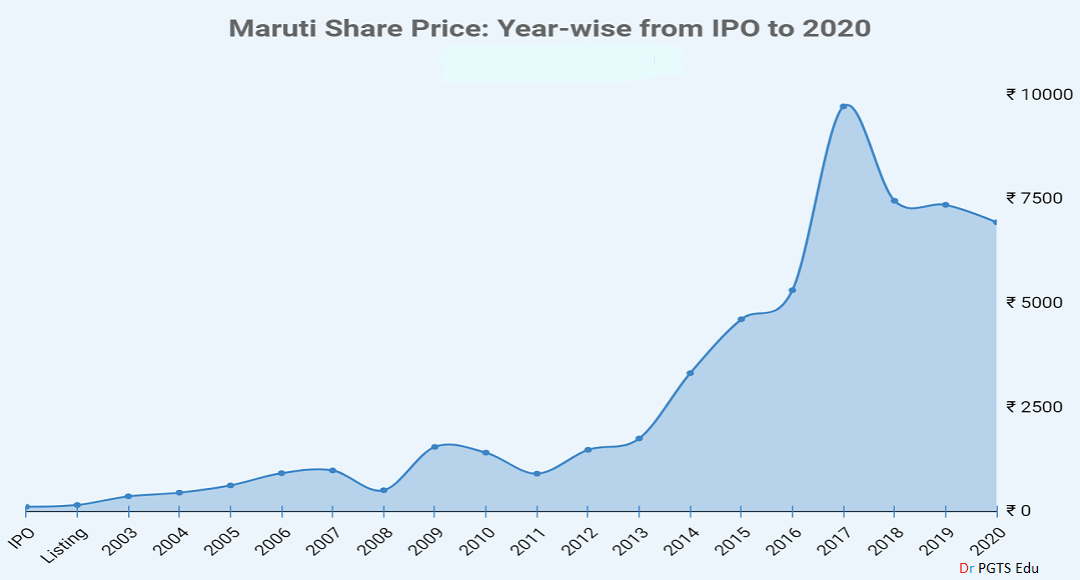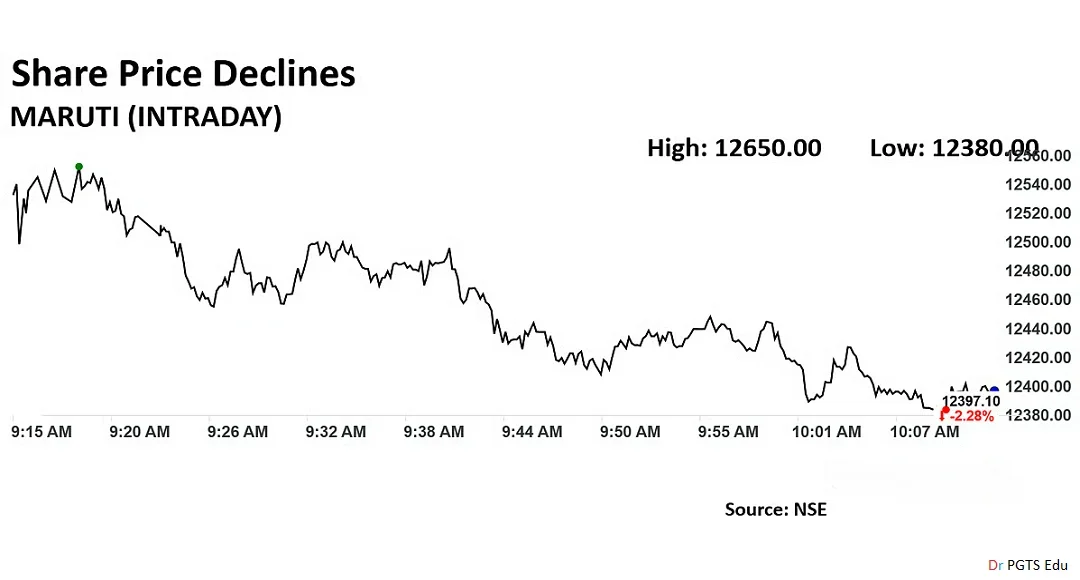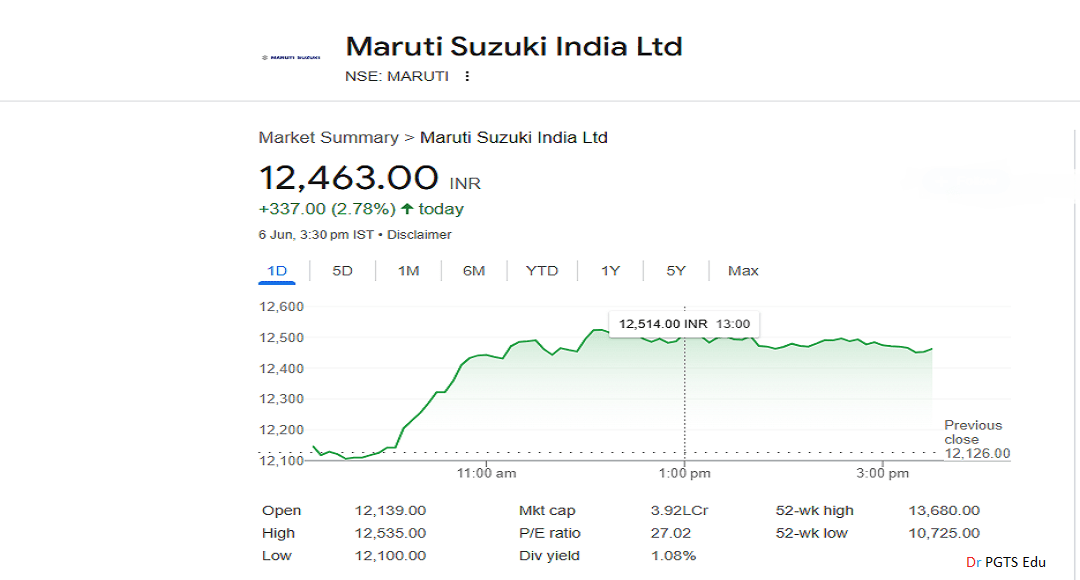When it comes to Indian auto stocks, Maruti Suzuki has long held a prominent position in the portfolios of both retail and institutional investors. As we move through 2025, the question on every investor’s mind is: Is the current Maruti share price part of a sustainable boom or a speculative bubble waiting to burst? Let’s dive deep into Maruti’s history, its stock market performance across BSE and NSE, IPO legacy, and recent market trends to decode what 2025 holds.
A Brief History of Maruti Suzuki
Maruti Suzuki India Limited was founded in 1981 as Maruti Udyog Limited and entered into a joint venture with Suzuki Motor Corporation of Japan in 1982. Since then, the company has played a pioneering role in transforming India’s automobile landscape.
Known for producing affordable, fuel-efficient, and family-friendly cars like the Maruti 800, Swift, Baleno, and Wagon R, Maruti quickly became synonymous with trust and reliability in Indian households. Over the years, it has dominated the Indian passenger car segment with over 40% market share at various points.
Maruti Suzuki’s IPO Journey
Maruti went public in 2003, with its IPO being one of the most anticipated in Indian stock market history. The issue was oversubscribed 10 times, demonstrating the confidence investors had in the brand. Since then, Maruti’s stock has delivered multifold returns for long-term investors.
Maruti Share Price in 2025: BSE and NSE Performance

As of June 2025, Maruti Suzuki trades actively on both the Bombay Stock Exchange (BSE) and the National Stock Exchange (NSE) under the ticker MARUTI. Here’s a quick snapshot of its current standing:
| Exchange | Ticker Symbol | Price (As of June 2025) | 52-Week High | 52-Week Low |
|---|---|---|---|---|
| BSE | 532500 | ₹12,850 | ₹13,790 | ₹9,870 |
| NSE | MARUTI | ₹12,840 | ₹13,775 | ₹9,865 |
Note: Prices are indicative and subject to change based on market conditions.
Key Factors Driving Maruti Share Price in 2025

1. EV Transition and Green Push
Maruti Suzuki’s delayed entry into the electric vehicle (EV) space was a concern in 2023–2024. However, its recent partnership with Suzuki Japan for launching affordable EVs under ₹10 lakh has revived investor sentiment.
2. Strong Domestic Demand
Despite global slowdowns, India’s auto market has remained resilient. Increased income levels, lower interest rates, and government incentives for car buyers have pushed demand back on track.
3. Export Performance
Maruti’s strategic focus on emerging markets in Africa and Latin America has resulted in a nearly 30% YoY increase in exports, strengthening revenue growth and investor confidence.
4. Cost Optimization and Local Manufacturing
High levels of localization and smart cost-cutting have helped Maruti maintain its profit margins even in inflationary times.
Maruti Share Price Trend: Boom or Bubble?

Looking at the current rally in share prices, it’s easy to get carried away. But is it a boom based on fundamentals or a bubble driven by hype?
Boom Argument:
The company has strong earnings, a robust product pipeline (including hybrids and EVs), and impressive cost control. Its P/E ratio, while slightly stretched, is still within industry norms.
Bubble Argument:
Some analysts argue that investor exuberance is pushing prices beyond realistic earnings expectations. A slowdown in EV execution or global recession could quickly reverse gains.
Expert Verdict
Most brokerage firms, including Motilal Oswal, ICICI Direct, and HDFC Securities, currently rate Maruti as a “Buy” or “Accumulate”. The consensus target price ranges from ₹13,500 to ₹14,200, indicating moderate upside from current levels.
That said, investors are advised to track key events like EV model launches, government policies, and quarterly earnings reports before making long-term commitments.
So, is Maruti’s share price in 2025 a boom or bubble? The answer is somewhere in the middle. While the fundamentals appear strong, the current valuation demands sustained execution and innovation from the company. Investors should stay informed, diversify their portfolios, and consider their risk tolerance before jumping in
Read also: Bajaj auto share price soars is now the perfect time to invest

